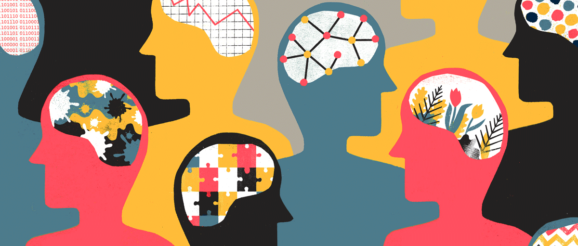Artificial Intelligence: The Need for New Age Counseling | CPO INNOVATION

India spends 33 paise per mental health patient annually, a frightening figure which has led the WHO to estimate that roughly 20 percent of the Indian population will suffer from mental illnesses by 2020. That would translate in more than 200 million Indians suffering from mental illnesses, and the situation is certainly not improving.
A recent study published in the reputed medical journal, The Lancet, discloses a range of mental health concerns from anxiety and anger to sleep disturbances, depression, and post-traumatic stress disorder (PTSD) which are likely to take place due to the psychological impact of self-imposed quarantine, such as the COVID-19. It has been reported that up to 29 percent of quarantined patients during SARS suffered from PTSD.
Considering such circumstances, will India be capable of managing the situation successfully? According to the latest reports, India’s 2018 budget stated that out of 7 billion dollars only 500 million ‘rupees’ would be sanctioned for healthcare, however, this was later reduced to 400 million rupees. India invests an average of 5 crore rupees in the sector annually.
Is AI the solution?
Artificial Intelligence (AI) is useful in every domain of behavioral and mental healthcare, including clinical decision-making, treatments, assessment, healthcare management, research and more. For example, the machine learning algorithm created at Vanderbilt University Medical Centre, in Nashville, uses hospital admissions data, including age, gender, zip code, medication, and diagnostic history to predict the likelihood of any given individual taking their own life. In trials using data gathered from more than 5,000 patients who had been admitted to the hospital for either self-harm or suicide attempts, the algorithm estimated an accuracy rate of 84 percent at predicting whether someone would attempt suicide the following week, and 80 percent accuracy at predicting whether someone would attempt suicide within the next two years. It is considered that every 40 seconds one person dies from suicide and for every adult who dies from suicide, there are more than 20 others who have attempted to end their life, worldwide.
Unfortunately, there is no objective blood test for mental health. AI can help India’s 0.75 psychiatrists per 100,000 population of people support mental health professionals in several ways. Firstly, algorithms can analyze data much faster than a human being and can suggest possible treatments while monitoring a patient’s progress and alert the human professional about any possible concerns.
In several cases, AI and a human physician would be working together. Due to the lack of mental health professionals, it can take months to get an appointment and if patients live in an area without enough mental health professionals, their wait will be even longer. Hence, AI can provide a tool through which an individual could have 24/7 access without waiting for the appointment and reducing the required charges to the bare minimum.
It has been proven the anonymity provided by talking to a bot cannot compare to that given by a human who will have the judgment factor alive.
Additionally, mental health services including video, text-based therapy, and coaching sessions have been developed, which analyze real-time data collected using mobile services to help the specialists track the patient progress, identifying the breakdown and customizing individual care plans.
For example, Ellie, a virtual 3D therapy avatar functions by using different algorithms that analyse the questions, motions, and gestures of the patient. The program tracks down 66 points on the patient’s face and notes the patient’s rate of speech and the length of pauses before answering questions. Ellie’s actions, emotions, and speech mimic those of a real therapist — but not entirely, which is an advantage with patients who are fearful of therapy.
We must highlight that India is the most depressed country in the world according to WHO reports (2018). Government authorities do not seem to acknowledge the importance of mental health leading to regular conflictive situations among individuals. There is hope that with the implementation of AI, this situation will ease and normalize itself with the passing of time. In the aftermath of the COVID-19 crisis, India will observe an ever-growing number of psychological disturbances which, with the timely implementation of AI, could lead to a significant reduction of the same.
The onus is on us.
This article is co-authored by Dr. Raul Villamarin Rodriguez and Mohamed Junaid, Woxsen School of Business
